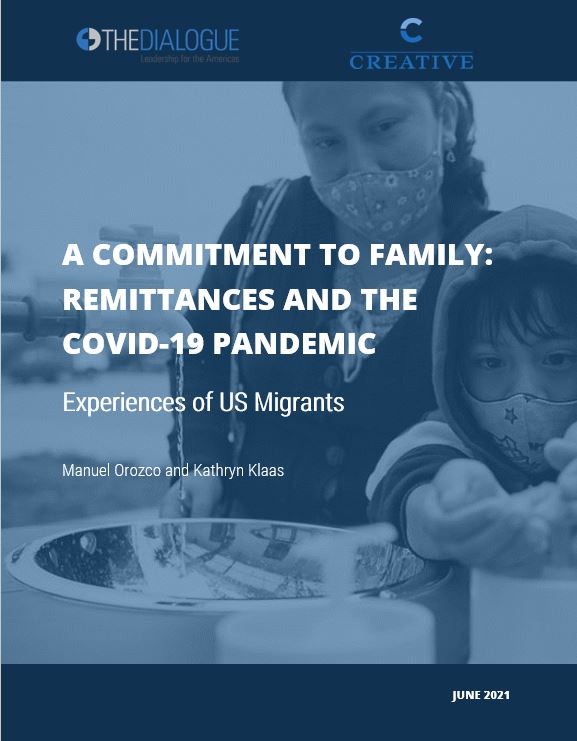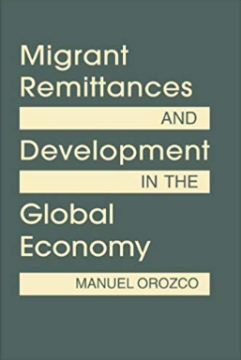The Earthquake’s Impact on Remittances
The earthquake in Haiti has exacerbated an existing distress during the international recession and increased uncertainty of what to do and how to help.
This report from the Migration, Remittances & Development Program presents the findings of a survey carried out with more than 1,000 US immigrants from eight Latin American and Caribbean countries during the Covid-19 pandemic.
Within the context of the International Day of Family Remittances, commemorated annually on June 16, this report offers evidence of migrants' commitment and contribution to their families abroad during times of hardship and uncertainty.
The study identifies critical aspects that shaped migrants’ experiences in 2020 and early 2021, the coping mechanisms they employed, and, importantly, the determinants of continuing to send money back home in times of crisis. People continued remitting despite having lost employment, working fewer hours, or being affected by the spread of the virus.
Moreover, the continuity with which migrants sent money during 2020 and the increases already seen in the first quarter of 2021 provide more than an opportunity to leverage these funds for economic recovery and modernization. They offer an urgent chance for remittances to be integrated into strategies for coping with slow recovery from the pandemic. Furthermore, they can be invested in areas that modernize home countries’ economies while also addressing contexts that are typically conducive to large migration.
1. Economic challenges. Migrants reported that the hardest part of the pandemic was the panic and stress it created, along with the fact that they were working less hours or had lost their job. Factors related to income insecurity and instability were mentioned by nearly one in three migrants surveyed in 2020. In early 2021, the responses shifted and coincided with renewed employment.
2. Few coping mechanisms. Migrants resorted to few financial measures to deal with the crisis. These strategies centered around three areas: reducing expenses, which included changing remitting habits, depending more on savings, and looking for a new job, either because they lost their job or needed a second job to supplement income.
3. Limited engagement with home countries. The pandemic limited migrants' engagement with their home country in several ways, including sending remittances. The extent to which migrants surveyed in 2020 limited travel to their home country, in-kind remittances, the purchase of nostalgic goods, and phone calls home was double that of those surveyed in 2021. These responses and changes reflect the real-life dynamics specific to work and unemployment.
4. Shifts in sending methods. The survey points to important changes in the channels migrants use to send remittances as a result of social distancing needs. The shift was not as large as thought, but important, nonetheless. Seven percent of migrants said they were using a different sending method at the time of the survey than they were before the pandemic. The percent of senders using agents to send money dramatically drops to 67 percent in 2020 compared to 84 percent in 2016.
5. Determinants of remitting under pandemic circumstances. Factors statistically correlated with remitting higher amounts or sending more than before the pandemic included being an essential worker, having children in their home country, and having a stronger financial base.
The earthquake in Haiti has exacerbated an existing distress during the international recession and increased uncertainty of what to do and how to help.
How do patterns of migration and remittances differ across regions? What kinds of frameworks support the contributions of remittances to local development?
Despite the economic importance of migration, Central American governments have lacked integral policies to leverage migration for development.


